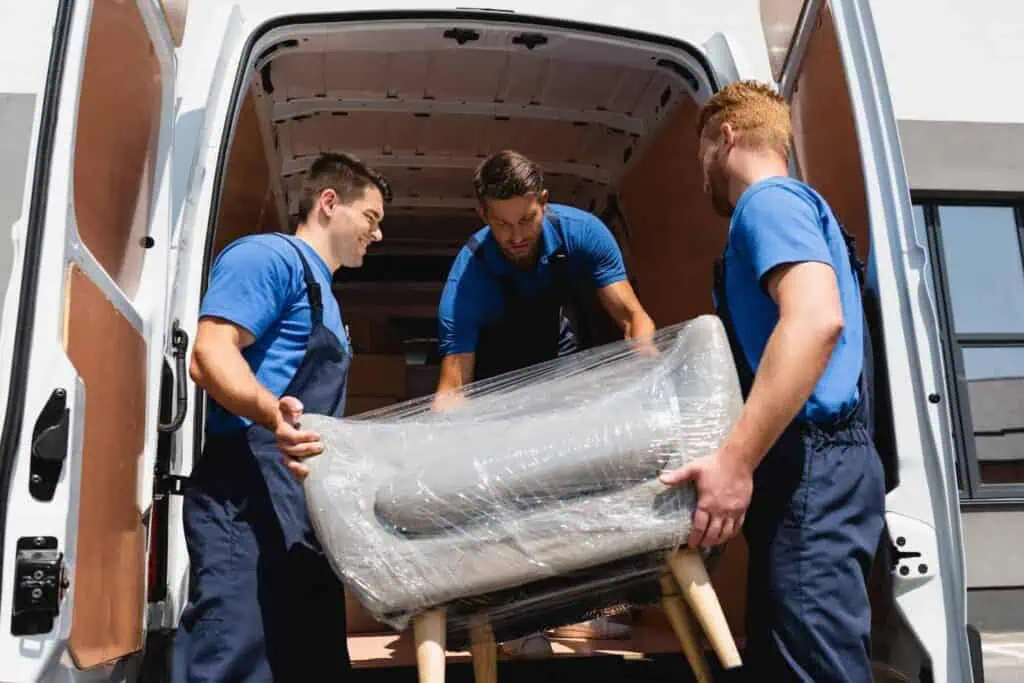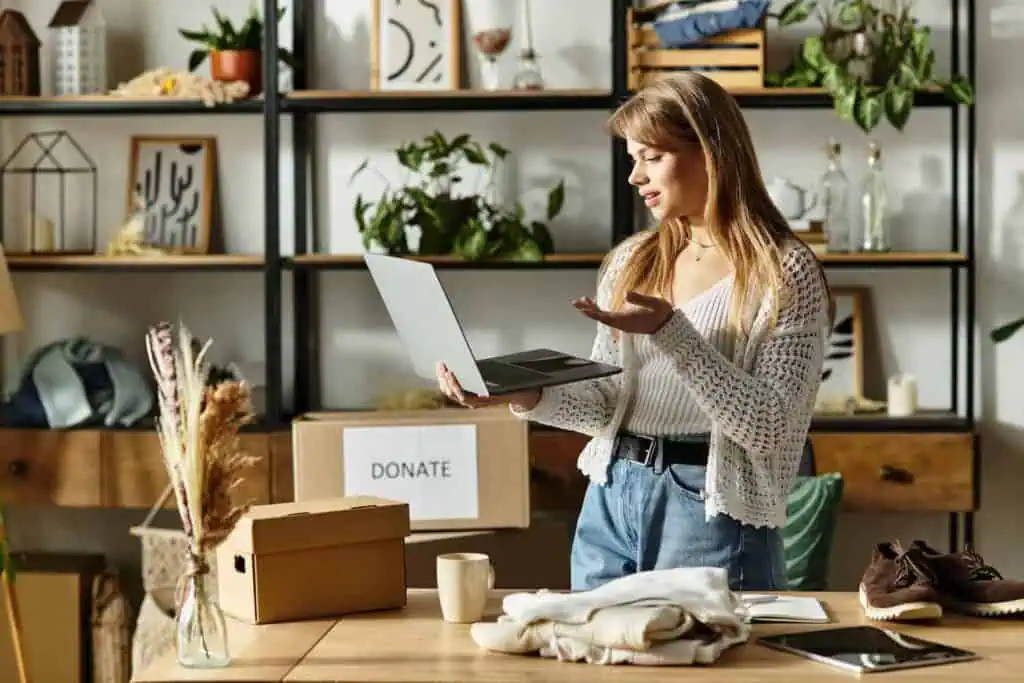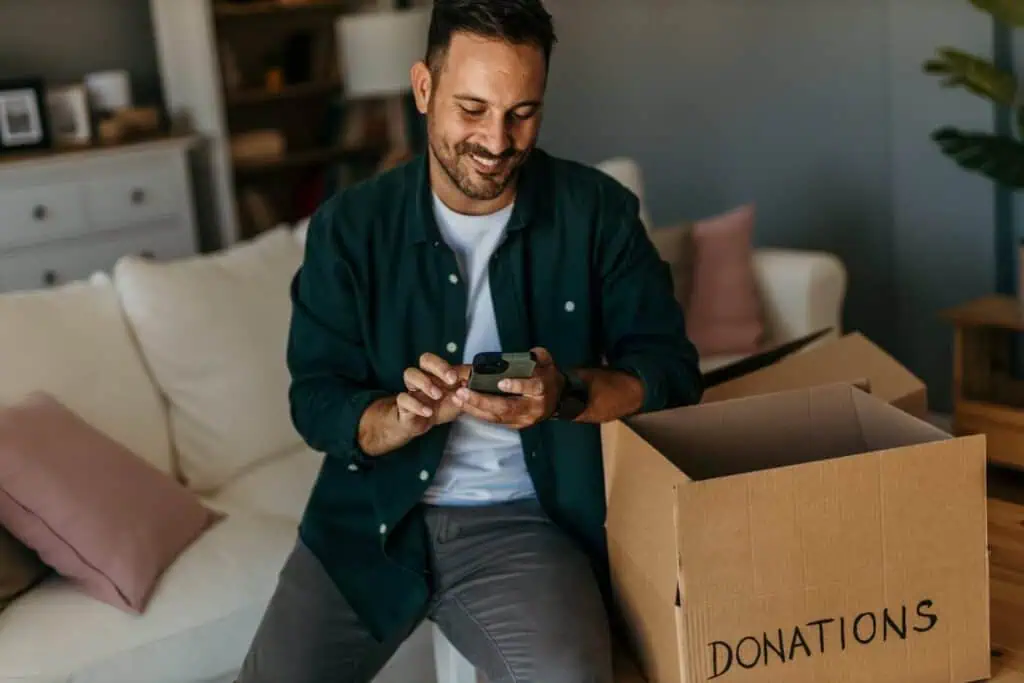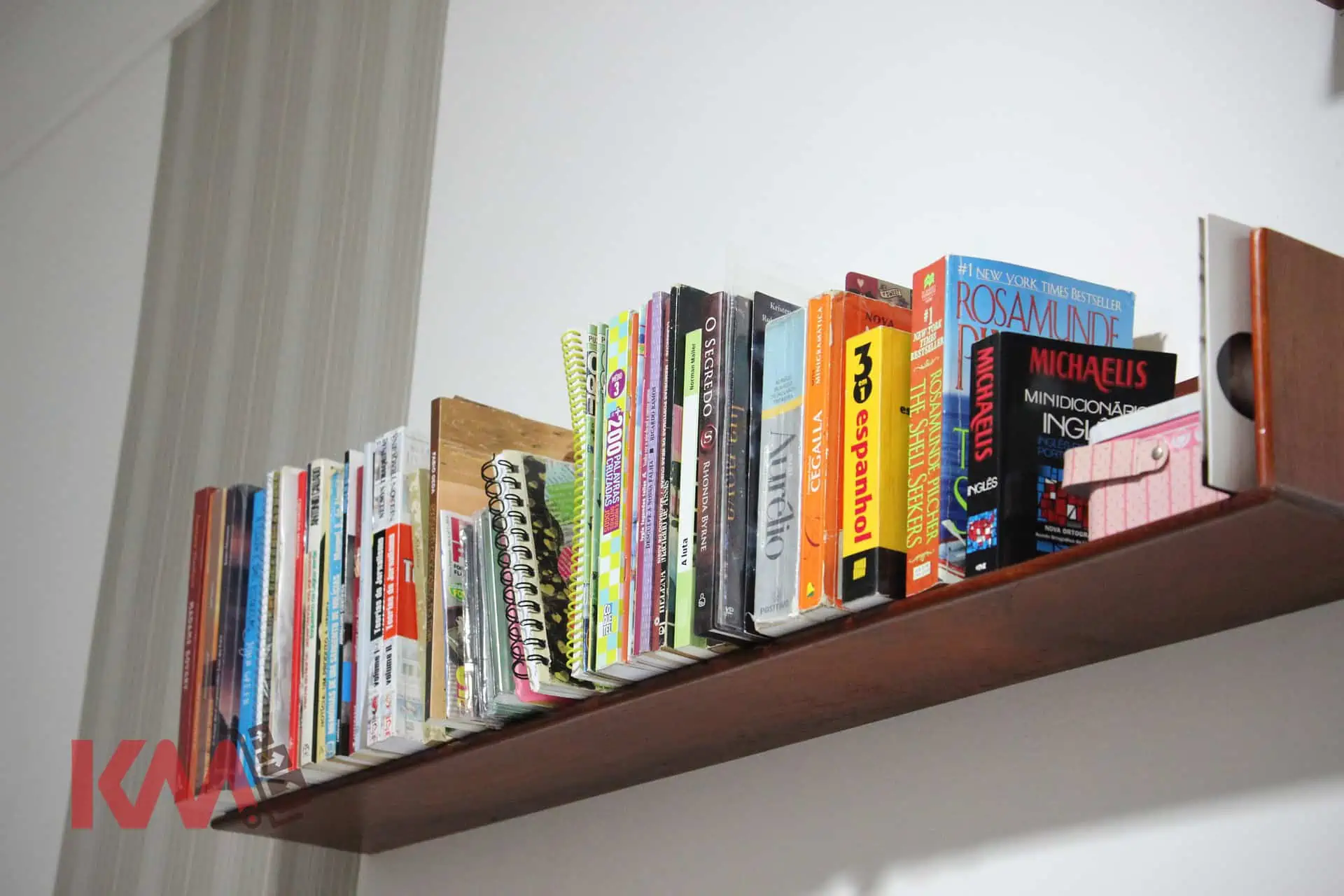Looking to donate furniture with free pickup? Giving away your used furniture keeps perfectly good pieces out of the landfill and in homes where they’re needed. In fact, EPA data shows that Americans generated 12.1 million tons of furniture and furnishings waste in 2018 (about 4.1% of total municipal waste), with roughly 80.1% of it landfilled. At the same time, charitable giving in the United States hit an estimated $557.2 billion in 2023.
Donating your furniture means you become part of this spirit of generosity and, as a bonus, get a tax deduction in return for your gift. Plenty of national charities will haul away your furniture for free and issue a receipt you can use for tax purposes.
In this article:
- Finding Places to Donate Furniture Near You
- Where Are Furniture Donation Centers That Pick Up Near Me
- What To Know Before Donating Furniture
- FAQs
Finding Places to Donate Furniture Near You
If you’re looking to donate furniture near you, we’ve put together this guide to make it easy. We’ve focused on national organizations that offer free donation pickup so that you don’t have to scroll through local directories or hire a hauler.
Some of these charities let you enter your ZIP code to confirm if pickup is available in your area:
- AMVETS
- The Arc
- Donation Town
- Furniture Bank Network
- Goodwill
- GreenDrop
- Habitat for Humanity
- Out of the Closet
- Pick Up Please (VVA)
- Salvation Army
- Vietnam Veterans of America
- PickUpMyDonation
Who Will Pick Up Furniture Donations for Free?
Wondering who will pick up furniture donations for free? Most of the organizations in this list offer curbside pickup in multiple states, and some even cover most of the country. In many cases, all you have to do is enter your ZIP code on the charity’s website to check availability and schedule a pickup date.
1. AMVETS (American Veterans)
AMVETS funds veteran support programs through donations collected in select areas, including Maryland, DC, Virginia, Delaware, Oklahoma, and major Texas cities like Dallas, Houston, and San Antonio.
You can donate furniture with free pickup through amvetspickup.org, as long as your items are clean, in good working condition, and under 5 years old. They typically accept things like wooden dining chairs, coffee makers, microwaves, bedside tables, lamps, and clothing.
Just set everything outside, clearly marked for AMVETS. Their drivers won’t enter your home or help carry anything out.
2. The Arc
The Arc supports individuals with intellectual and developmental disabilities through its network of thrift stores. Many local chapters offer free pickup for donations, but availability and accepted items can vary by location.
Typically, The Arc accepts nightstands, end tables, folding chairs, pots, pans, dishes, silverware, glasses, and small appliances. They also welcome donations of books, toys, linens, and decorative items. In most cases, they don’t accept large pieces of furniture, mattresses, or items that are excessively worn or damaged.
“Large sectional sofas, waterbeds, and damaged dressers are often declined [for donations], even if they’re technically usable. Pickup crews also won’t take anything infested, unstable, or waterlogged.”
To schedule a pickup, locate your nearest chapter using The Arc’s chapter locator and contact them directly to confirm their pickup services and accepted items. Make sure all donations are clean, in good condition, and placed outside your residence, clearly labeled for The Arc.
3. Donation Town
Donation Town connects you with local charities that offer free pickup for a variety of items. They accept clothing, shoes, purses, kitchenware, small appliances, bedding, linens, toys, electronics, books, sporting goods, tools, and small furniture.
To schedule a pickup, visit their website and enter your ZIP code to find participating charities in your area.
4. Furniture Bank Network
The Furniture Bank Network connects donors with local organizations across the U.S. and Canada that provide essential furnishings to families emerging from homelessness, domestic violence, or other crises.
These nonprofits accept a wide range of gently used items, including sofas, dining tables, mattresses, and small appliances. Some locations also welcome housewares.
To find a participating furniture bank near you and schedule a pickup, visit their directory and enter your ZIP code.
5. Goodwill Industries
Goodwill Industries operates over 3,000 stores across the U.S. and Canada, each managed independently. While some locations offer free pickup for large items, policies can vary.
Accepted donations typically include sofas, dining tables, dressers, nightstands, and bookshelves, provided they’re clean and in good condition. However, most locations don’t accept mattresses, box springs, or large appliances due to health and safety concerns.
In addition to furniture, Goodwill welcomes kitchenware, small appliances, electronics, linens, and home décor. All items should be gently used and functional. To schedule a donation or inquire about pickup services, use theGoodwill locator to find and contact your nearest store.
6. GreenDrop
GreenDrop handles home pickups on behalf of nonprofits like the American Red Cross and Big Brothers Big Sisters. They currently operate in parts of Pennsylvania, New Jersey, Delaware, Maryland, Virginia, and California.
They’ll take donations of pots and pans, children’s books, comforters, handbags, small kitchen appliances, and decor like framed prints and vases. Each item must be clean and weigh under 50 pounds. They don’t take furniture that’s oversized or hard to carry, so no sofas or dressers.
To donate, schedule a pickup online and leave your labeled items outside by 7 am. You don’t need to be home, and you’ll get a receipt for tax purposes after the driver collects your donation.
7. Habitat for Humanity ReStore
Habitat for Humanity ReStores accept donated home goods and sell them to fund local homebuilding projects. Most locations offer free pickup for larger donations like sofas, bookshelves, dining sets, and bed frames, as long as they’re clean and in good condition.
They also welcome nightstands, working appliances, doors, lighting fixtures, cabinets, hardware, and boxes of flooring. Some stores may even take bathtubs or leftover tile. You’ll need to check with your local ReStore to confirm exactly what they can take, since each one sets its own policies.
To donate, start by entering your ZIP code on the ReStore directory. If they offer pickup in your area, you’ll be able to choose a date and get detailed instructions on how to prep your items.
8. Out of the Closet
Out of the Closet is a thrift store chain operated by the AIDS Healthcare Foundation, with locations in California, Florida, Ohio, New York, and Washington state. Proceeds support free HIV research, testing, prevention, and treatment services.
They accept large-item donations, including sofas, desks, dressers, dining tables, working TVs, and small appliances that are under 3 years old. You can also donate clean adult clothing, shoes, books, home décor, and kitchen items. They don’t take mattresses, damaged furniture, baby gear, or anything that doesn’t meet resale standards.
To schedule a pickup, head to their donation page, select your store, and fill out the online form. Once confirmed, a driver will come by for curbside collection — just make sure your items are clearly labeled and ready to go.
9. Pickup Please
PickUpPlease.org offers free donation pickup services for small household items and furnishings that one person can easily carry. That means items like mirrors, nightstands, small chairs, and office chairs. They don’t accept large furniture items such as sofas, mattresses, or large appliances.
To schedule a pickup, visit the website and enter your ZIP code to check availability in your area. Place your clearly labeled donations outside your home on the scheduled day, and their driver will collect them — rain or shine. They’ll provide a tax deduction receipt after pickup.
10. The Salvation Army
The Salvation Army runs donation centers and thrift stores across the country, and most locations offer free furniture pickup. Schedule it online by entering your ZIP code and listing what you’re donating.
Accepted items vary by region but often include dressers, dining tables, nightstands, working appliances, rugs, and clean upholstered chairs. Most locations won’t take mattresses or box springs, but they’ll usually accept bed frames, headboards, and similar pieces if they’re in good shape.
Set your items outside on the scheduled day, clearly marked for The Salvation Army. You don’t need to be home, and they can email you a receipt after collection.
11. Vietnam Veterans of America (VVA)
The VVA provides free home pickup services for donations in many areas across the United States. Donors can schedule pickups by entering their ZIP code at ClothingDonations. Items they take include clothing, shoes, linens, small appliances, kitchenware, toys, books, jewelry, and small furniture such as chairs and tables.
Place your donations in bags or boxes labeled VVA and leave them in a visible location by 7:30 a.m. on the scheduled day. They provide a tax-deductible receipt after pickup.
12. PickUpMyDonation
PickUpMyDonation.com connects you with local nonprofits that offer furniture pickup in your area. It’s a tool, not a charity, designed to help large-item donors find organizations with available trucks and crews.
Start by entering your ZIP code and describing what you’d like to give. If a partner nonprofit wants your items (they accept things like dressers, bed frames, shelving units, or working appliances), you’ll hear from them directly to arrange a free pickup. All donations must be in good condition and ready to use.
In areas without a local match, the site may suggest a paid pickup through one of its hauling partners to keep your furniture out of the landfill.
How Do I Donate Furniture to Veterans With Free Pickup?
If you want your donation to directly support veterans, a few national organizations make it easy. AMVETS and Vietnam Veterans of America provide free donation pickup in select areas. These groups use the proceeds to fund job assistance, education, housing support, and outreach programs for veterans across the country.
To make an impact closer to home, you can contact local veteran-focused organizations directly. Try reaching out to your nearby American Legion or VFW post. Some posts may even accept furniture donations for their own spaces.
No matter where you give, be sure to check that the items you’re donating are clean, usable, and easy to pick up. When decluttering or downsizing, take some time to carefully decide which sentimental items mean the most to you, and consider donating the rest.
What Regional Charities Offer Free Furniture Pickup?
| City | Local Charity | Phone Number | Website |
| New York City | Habitat for Humanity NYC and Westchester ReStore | (332) 777-5060 | habitatnycwc.org/restore |
| Society of St. Vincent de Paul | (800) 974-3571 | svdpli.org | |
| Los Angeles | Habitat for Humanity of Greater Los Angeles ReStore | (323) 421-3700 | habitatla.org/restore |
| Society of St. Vincent de Paul | (800) 974-3571 | svdpla.org | |
| Chicago | Chicago Furniture Bank | (312) 752-0211 | chicagofurniturebank.org |
| Habitat for Humanity Chicago ReStore | (312) 563-0296 | habitatchicago.org/restore | |
| Houston | Houston Furniture Bank | (713) 842-9771 | houstonfurniturebank.org |
| Helping Hands Charity Inc. | (713) 334-5434 | houstonhelpinghands.com | |
| Phoenix | Habitat for Humanity Central Arizona ReStore | (602) 268-9022 | habitatcaz.org/restores |
| Society of St. Vincent de Paul Phoenix | (602) 254-3338 | stvincentdepaul.net | |
| Philadelphia | Habitat for Humanity Philadelphia ReStore | (215) 739-9300 | habitatphiladelphia.org/restore |
| Salvation Army Philadelphia | (800) 728-7825 | satruck.org | |
| San Antonio | Habitat for Humanity of San Antonio Home Center | (210) 223-5203 | habitatsa.org/habitat-home-center |
| SAMMinistries Furniture For A Cause | (210) 340-0302 | samm.org/ffac | |
| San Diego | Father Joe’s Villages | (619) 446-2100 | my.neighbor.org |
| Veterans Thrift Store | (619) 337-9244 | veteransthriftstores.com | |
| Dallas | Habitat for Humanity ReStore Dallas | (214) 678-2300 | dallasareahabitat.org/restore |
| Salvation Army Dallas | (800) 728-7825 | satruck.org | |
| San Jose | Habitat for Humanity East Bay/Silicon Valley ReStore | (510) 803-3343 | restore.habitatebsv.org |
| Salvation Army Silicon Valley | (800) 728-7825 | satruck.org |
What if I Can’t Find an Organization to Donate To?
Sometimes the big-name charities don’t serve your zip code, or maybe they won’t take what you’re trying to give. If you still want to donate furniture (with free pickup) to veterans or local families, you’ve got options. Just keep in mind that informal donations usually don’t come with a tax write-off.
Let’s look at a few other ways you can make sure your furniture gets to someone who needs it:
- Check local veterans’ Facebook groups: Many vets use community groups to ask for help when they’re setting up a new place or coming back from deployment.
- Post in your city’s Nextdoor or Buy Nothing group: These free-sharing platforms are full of neighbors looking to furnish apartments after transitions — especially foster youth aging out of care or families recovering after a crisis.
- Call a nearby shelter or community health org: Some transitional housing programs accept furniture donations, especially small items like chairs or end tables.
- Reach out to an animal rescue: Many animal shelters can use older couches, clean rugs, or end tables to create more comfortable adoption rooms or office spaces.
When all else fails, a quick call to your local VFW or American Legion post might reveal a veteran in your neighborhood who could use what you’re giving away.
What Are the Tax Advantages of Donating Furniture?
When you donate furniture to a qualified nonprofit, you could be trimming your tax bill. The IRS allows you to deduct the fair market value of household goods you donated if you itemize your taxes.
But that means you’ll need a receipt from the organization that took your items. Most charities will give you one automatically after pickup or drop-off, as long as the items are in good condition.
The value of your deduction depends on what you gave and what similar items are worth at resale. Think of it like this: If you donated a gently used sofa that could sell for $150 at a thrift store, that’s around the amount you can write off.
It’s worth noting that these deductions only apply if you’re itemizing your return. If you take the standard deduction, this won’t make a difference.
Looking for ways to save money while moving home? Check out our guide to thrifty moving.
What to Know Before Donating Furniture
Before you hand off that extra dresser or unused recliner, there are a few important things to check. Most charities have clear rules about what they will and won’t accept — and if your furniture doesn’t meet their guidelines, it could be turned away at the curb.
Dos and Don’ts of Donating Furniture
Do:
- Confirm what your chosen charity accepts. Some will take full bed frames and armchairs, while others only want small furnishings like side tables and lamps. Always review their donation criteria online or by phone.
- Make sure each item is clean and fully functional. That includes no rips, no major scratches, and no missing pieces. If it smells strongly of pets or smoke (or needs repairs), it’s unlikely to be accepted.
- Get your receipt. Whether you donate in person or book a pickup, the organization should give you written documentation. If you plan to claim a deduction, you’ll need this for your records.
- Disassemble large furniture when asked. Some charities can’t move oversized items unless they’re broken down. Bed frames, cribs, and shelving units often need to be flattened or boxed beforehand.
- Take photos beforehand. If you’re unsure whether a piece will be accepted, snap a few photos and send them to the organization.
These quick checks can make the difference between a successful donation and a surprise trip to the dump. Before scheduling, run through the list below.
Don’t:
- Assume all furniture is fair game. Large sectional sofas, waterbeds, and damaged dressers are often declined, even if they’re technically usable. Pickup crews also won’t take anything infested, unstable, or waterlogged.
- Pack banned items into drawers or storage compartments. If you’re donating a cabinet or desk, don’t stash old cables, glassware, or electronics inside unless the charity specifically accepts them.
- Skip the prep. If you’ve scheduled a pickup, charities expect everything to be ready and accessible. Items should be easy to reach, clearly labeled (if requested), and not blocked by gates, pets, or parked cars.
- Wait until moving day. Most organizations don’t offer same-day service, and pickups often book up fast, especially at the end of the month or around holidays.
- Tape or bag fragile parts without checking. Some crews prefer items like glass panels or table legs left unwrapped so they can inspect them on-site. When in doubt, ask.
How to Schedule a Donation Pickup
Most large charities offer online tools to check if you’re in their service area and book a pickup. You’ll usually select a date, list the items you’re donating, and confirm your address. Some offer next-day availability, while others may be booked out for a week or more.
“In fact, EPA data shows that Americans generated 12.1 million tons of furniture and furnishings waste in 2018 (about 4.1% of total municipal waste), with roughly 80.1% of it landfilled.”
Once you’ve locked in your pickup, follow the charity’s instructions for drop zone setup. Some ask for items to be placed outside by 7 am. Others prefer covered areas or ground-level access. If you have stairs, gates, or specific timing needs, mention that during scheduling.
- Set a calendar reminder. Pickup windows can be wide — anywhere from early morning to mid-afternoon. Mark it down so you’re not caught off guard.
- Label donations clearly. Even if you’re the only house on the block, a quick “For Donation” or “For [Donation Center’s Name]” sticky note or taped sign helps avoid confusion and missed pickups.
- Check the weather. If storms are expected, protect your furniture with a tarp or large trash bags. Most drivers will still pick up in the rain, as long as the item is safe to load.
Once you’ve chosen the a charity that accepts what you want to donate, scheduling is usually straightforward.
FAQs
Who takes used furniture for free?
Plenty of national and regional charities will pick up used furniture at no cost, as long as it’s in good condition. Habitat for Humanity ReStores, the Salvation Army, and Furniture Bank Network offer pickup in many areas. Some, like AMVETS, operate in specific states but still make it easy to schedule online. If you’re not sure who covers your neighborhood, try a directory like DonationTown to see which groups are nearby.
Are furniture donations tax-deductible?
If the charity is registered as a 501(c)(3), your furniture is in usable condition, and they accept it, you can usually claim a tax deduction. You’ll need a receipt that lists what you donated, and itemize on your tax return. If you’re not sure how much your donation is worth, you can look up the fair market value for similar items at resale.
Do charities accept worn or damaged furniture?
Charities will only accept worn or damaged furniture if it’s still usable. If your furniture is torn, broken, heavily stained, or smells bad, most places will turn it away. Some charities post photo examples of what they’ll take, and most give clear guidelines on what condition they require. If you wouldn’t put it in your own living room, it probably shouldn’t be donated.
Where can I donate a couch with free pickup?
Your best bet is a local branch of Habitat for Humanity, the Salvation Army, or another regional furniture bank. Most will collect couches for free if they’re clean, structurally sound, and not oversized beyond what their trucks can handle. You can usually schedule online and choose a date that works for your timeline.
What furniture isn’t available for pickup?
Each charity has different rules, but most won’t accept mattresses, box springs, hospital beds, water-damaged furniture, or anything too bulky for a two-person team to lift safely. If you’re unsure, take a picture and reach out before scheduling. They’ll let you know what qualifies and what needs to be handled another way.
Who will pick up my piano for free?
A few nonprofit groups specialize in piano donations. You might have luck with Pianos for Education or the Beethoven Foundation, depending on where you live. You can also try calling local schools, churches, or community centers.
Who will pick up my mattress for free?
Due to health regulations, most charities won’t take your used mattress. Your local waste management company or bulk trash program might offer curbside removal on request.










